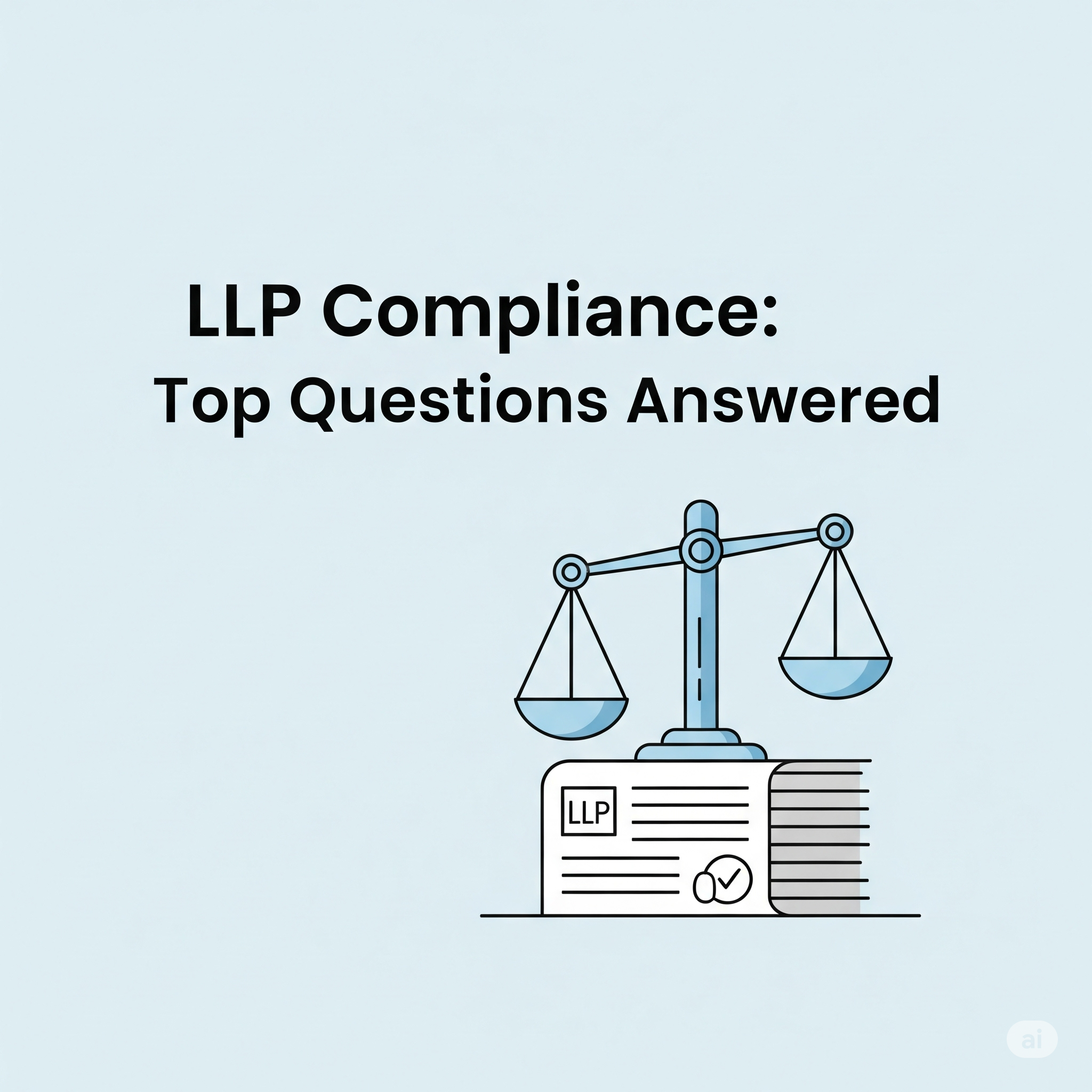LLP Compliance: Top Questions Answered
Limited Liability Partnerships (LLPs) are a popular business structure in India, combining the flexibility of partnerships with the limited liability of companies. However, many partners and business owners are often unclear about their compliance obligations. This blog answers the most frequently asked questions about LLP compliance.
1. What are the mandatory compliances for an LLP in India?
All LLPs registered in India must adhere to the following mandatory compliance requirements:
-
Filing of Annual Return (Form 11): Must be filed within 60 days of the end of the financial year (i.e., by 30th May).
-
Statement of Accounts & Solvency (Form 8): Must be filed within 30 days from the end of 6 months from the financial year (i.e., by 30th October).
-
Income Tax Return Filing: LLPs must file their income tax return annually, usually by 31st July (non-audit cases) or 31st October (if audit is applicable).
2. Is it mandatory for LLPs to get their accounts audited?
Not always. Audit is mandatory only if:
-
The annual turnover exceeds ₹40 lakhs, or
-
The capital contribution exceeds ₹25 lakhs.
If neither of these conditions is met, LLPs are exempt from mandatory audits.
3. What is Form 11, and who needs to file it?
Form 11 is the Annual Return of the LLP, which contains details of the partners and any changes during the year. All LLPs, irrespective of their turnover or business activity, must file this form annually.
4. What happens if an LLP fails to comply with annual filings?
Non-compliance with LLP filing requirements can result in:
-
Hefty penalties: ₹100 per day of default (no upper limit)
-
Disqualification of partners
-
Freezing of LLP status, leading to difficulties in banking and operations
-
Potential strike-off of the LLP by the Registrar
5. Can an LLP be closed or struck off voluntarily?
Yes. If an LLP is not carrying on any business for more than one year, it can apply for a strike-off by filing Form 24. Certain conditions must be met, such as no pending dues or filings.
6. Are there any GST or other tax-related compliances for LLPs?
Yes. If your LLP is registered under GST, you must file:
-
Monthly/Quarterly GST returns (like GSTR-1, GSTR-3B)
-
Annual GST return (if applicable)
Additionally, LLPs may also need to comply with TDS, professional tax, and ESI/EPF (if applicable based on employees).
7. What records and books should an LLP maintain?
LLPs are required to maintain:
-
Books of account (cash or accrual basis)
-
Statements of account & solvency
-
Copies of all filings made with the Registrar
-
Minutes of meetings, if any
These must be preserved for at least 8 years from the date they are made.
8. Can a partner be held liable for LLP non-compliance?
While LLPs offer limited liability, designated partners are personally responsible for ensuring compliance. Failure to comply can result in penalties, fines, or legal consequences for designated partners.
Conclusion
Compliance is not just a legal formality—it's essential for the smooth functioning, credibility, and financial health of your LLP. By staying up to date with your filing deadlines and obligations, you can avoid penalties and ensure your business operates without hurdles.
Still unsure about LLP compliance? Consult a professional or reach out to compliance experts to help you stay on track.
